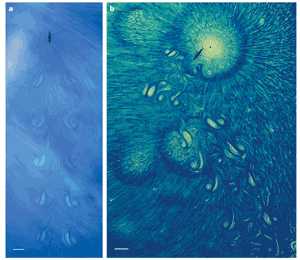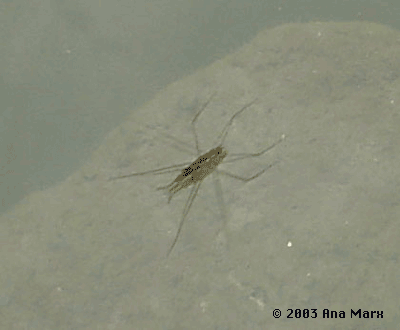|
Why doesn't the water strider sink?
The water strider's weight is pressing down on
the water with a force of mass x gravity, or mg. In order for
the water strider to avoid sinking, the water must be exerting a force
up on the insect. This force is a combination of surface tension caused
by hydrogen bonding between the water molecules and buoyency force that
says the water exerts a force on the insect that is equal to the weight
of the water displaced by the insect. The weight of the insect is also
distributed over six long legs covered with thousands of hairs (Hu, 2003).
How does the water strider move forward?
The water strider's legs make a rowing motion that
pushes the water in the opposite direction that the insect wants to go
(Hu, 2003). The Law of Conservation of Momentum states that momentum in
a system is conserved, which means that the insect gains forward momentum
when it imparts backwards momentum to the water.
|

© 2003 Nature Publishing Group
|

